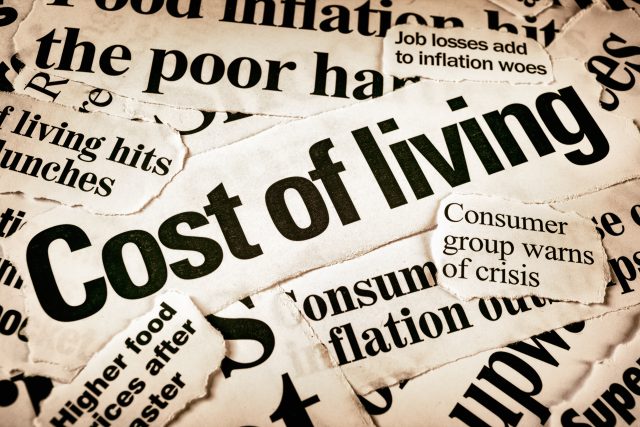This website uses cookies so that we can provide you with the best user experience possible. Cookie information is stored in your browser and performs functions such as recognising you when you return to our website and helping our team to understand which sections of the website you find most interesting and useful.
Cost-of-living crisis brings back 70s and 80s shopper behaviour
Consumers are showing signs of coping behaviours not seen since the austere late 70s and early 80s, according to a recent report.

In the latest biannual FMCG Demand Signals report from IRI, the findings revealed the return of the packed lunch, ‘staying in’, buying reduced products even out of date and running down savings.
The report, which covers data from in-store purchases and a survey in 12 global markets, flags that deteriorating disposable income is plaguing middle- and low-income consumers across the developed world.
Categories fueling 2022 growth have been identified as “Chilled & Fresh,” “Ambient, Beverages” and “Personal Care” products, however this has been partially offset by a decline in alcohol sales which noted a 5% drop.
IRI global SVP, strategic growth insights Ananda Roy said: “The ongoing slump in unit sales in response to inflation is an early indication of softness in FMCG demand. Unable to deliver every day lower pricing deals – and even maintain prices – because they’re experiencing higher input costs themselves, means brands and retailers need to look again at how they can support consumers throughout this very difficult period. We’re witnessing the biggest movement in consumer behaviour in over five decades, with shoppers questioning ‘Do I really need it?’, ‘Can we still afford to make a sustainable or altruistic choice?’ and now ‘Use less, waste less’.”
The report indicated that, in Europe, over half of consumers are in crisis with 61% of consumers surveyed in Europe’s largest markets saying they are worried about the impact on them personally and 71% have already made changes to how they buy and use everyday items. Remarkably, 58% have now cut down on essentials (driving to work or shop, missing meals and reducing heating) with 35% dipping into their personal savings and taking out loans to pay bills. Any money saved up over the pandemic has been drawn down to meet everyday living costs.
The data also outlined how as the impact of the energy crisis, weakening economy and high prices take root, consumers have begun to take control with 74% saying they understand the issues causing inflation and 69% saying they’re able to reasonably predict its impact on their day-to-day personal finances.
However, as consumers are adapting, shoppers are taking control of their expenses to moderate the impact of high levels of inflation across a wide range of everyday purchases, especially food and drinks and other staples. According to the findings, they are choosing where to shop to moderate the effects of the crisis – be that via another channel, another retailer if their regular brand isn’t available (26%) on promotion (34%), or if the shop doesn’t have a wide enough range of deals (41%). As such, consumers are being fickle and are switching to discounters who have expanded their stores into town centres and residential areas with a small but well-priced range of products at lower prices than the big retailers.
The findings showed how consumers are beginning to think ahead to get the best value and stay within their budget – Planning in advance how often the shop (22% are likely to make fewer trips) and how much they spend (21%). In fact, 58% are also comparing prices more often between similar brands or products.
Product labels now play a huge role, said the findings, with 41% of shoppers reading packaging labels for more information and 27% looking for independent reviews to justify purchases.
Interestingly, consumers are now creating new occasions, moments, and contexts for consumption of familiar everyday products with 29% changing where they consume everyday products (at-home, on-the-go, outside venues), leading to them taking a packed lunch or choosing to stay in for drinks with friends rather than going to a bar.
Where shoppers eat and drink is changing with just over half of shoppers planning to order less cooked food to be delivered at home (51%) and 47% plan to eat out less – at a restaurant, bar or café. There are, however, some silver linings as consumers still make room for new products, with healthier and plant-based options being popular.
Roy added: “Gone are the days of the one-stop weekly shop, we’re expecting to see an increase in shopping around for must-have products and the consumption of less expensive seasonal goods. There are several difficult decisions for shoppers on the cards, and retailers and brands will do well to take a long and hard look at how they’re going to respond to shopper needs.”

